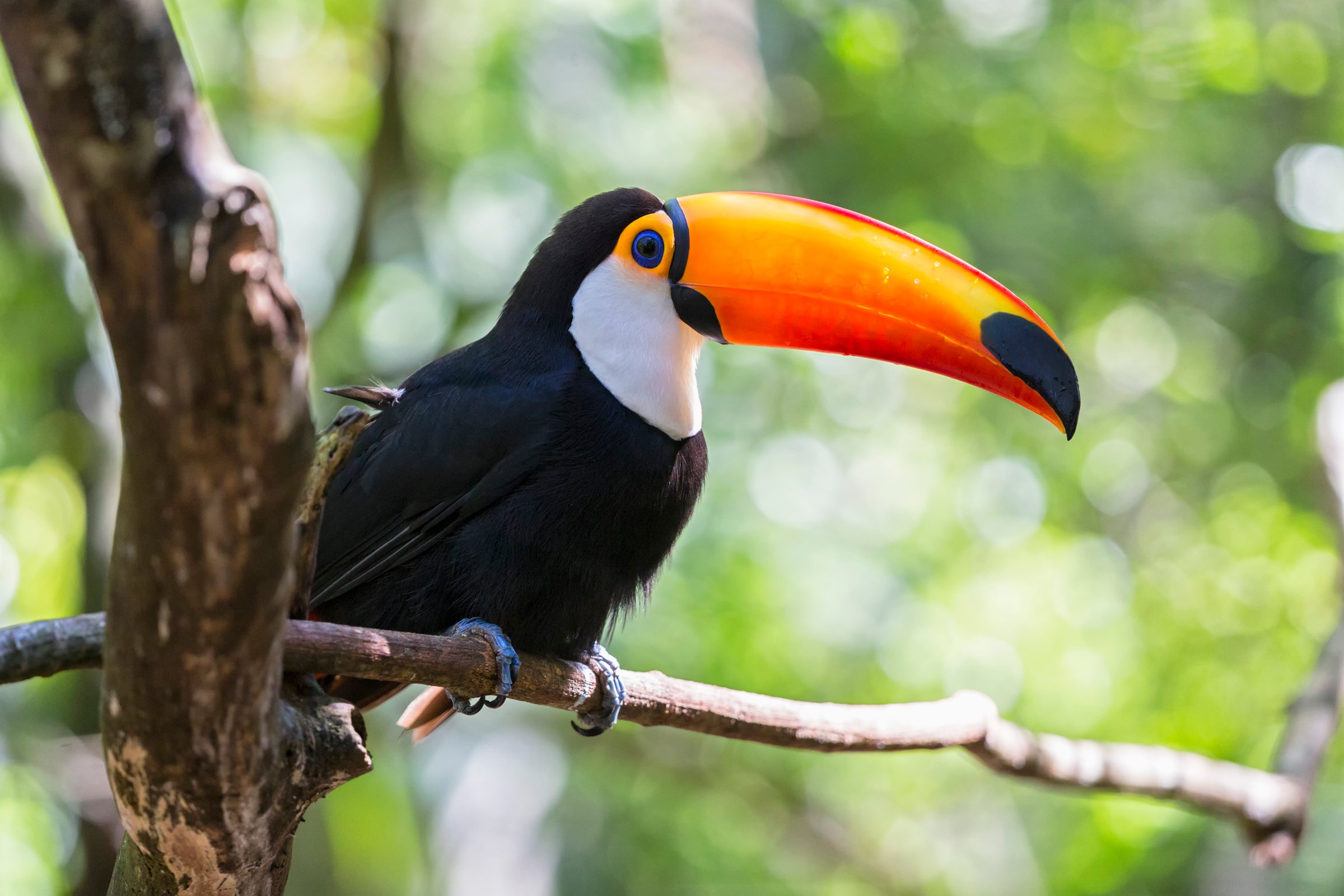
The decline in animal populations in tropical forests may play a role in accelerating climate change, according to new research.
The study, published in the journal Science Advances, shows how the loss of animals reduces the ability of forests to store carbon that would otherwise accelerate global warming. Large animals like large primates, tapirs and toucans play a key role distributing the seeds of the large trees that store the most carbon and in turn ensuring a healthy forest. The researchers note that tropical forests store 40% of the world’s carbon, but that carbon is released into the air when forests are degraded or destroyed. The decline in those animal populations thus has a tangible effect on how well their habitat can prevent carbon from reaching the atmosphere.
Deforestation has been a hot topic in discussions about how to reduce climate change, but the focus on animals has been less prominent. The new research adds relevance to campaigns to protect endangered animals in tropical forest areas where populations are on the decline due to everything from hunting to logging.
The study also adds to a growing area of research focused on how to address climate change by restoring nature.
More Must-Reads from TIME
- Donald Trump Is TIME's 2024 Person of the Year
- Why We Chose Trump as Person of the Year
- Is Intermittent Fasting Good or Bad for You?
- The 100 Must-Read Books of 2024
- The 20 Best Christmas TV Episodes
- Column: If Optimism Feels Ridiculous Now, Try Hope
- The Future of Climate Action Is Trade Policy
- Merle Bombardieri Is Helping People Make the Baby Decision
Write to Justin Worland at justin.worland@time.com